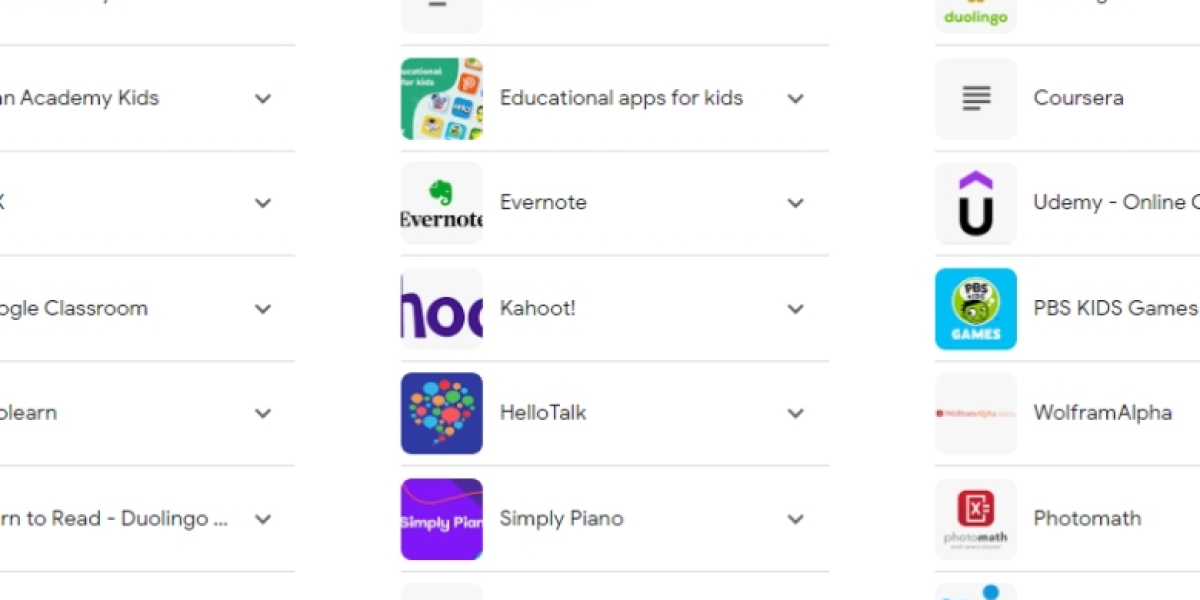In today's digital age, technology plays an increasingly integral role in education, reshaping traditional learning methods and providing innovative solutions to engage students. One of the most significant advancements in this realm is the proliferation of educational apps, which have revolutionized the way we acquire knowledge and skills. From preschoolers to lifelong learners, educational apps cater to diverse age groups and subjects, offering interactive experiences that enhance comprehension, retention, and enjoyment. In this article, we delve into the transformative impact of educational apps on learning and explore how they are reshaping the landscape of education.
Accessibility and Flexibility Educational apps break down barriers to learning by providing access to educational resources anytime, anywhere. Unlike traditional textbooks or classroom lectures, which are bound by physical constraints, apps can be accessed on smartphones, tablets, or computers, empowering learners to study at their own pace and convenience. This flexibility is especially beneficial for individuals with busy schedules, allowing them to fit learning into their daily routines without sacrificing other commitments.
Engaging Learning Experiences One of the key advantages of educational apps is their ability to create immersive and interactive learning experiences. Through gamification, multimedia content, and adaptive learning algorithms, apps make learning fun and engaging, motivating students to actively participate and progress. Interactive quizzes, simulations, and educational games not only reinforce concepts but also foster critical thinking, problem-solving, and creativity, skills that are essential for success in the 21st century.
Personalized Learning Educational apps leverage technology to deliver personalized learning experiences tailored to individual preferences, abilities, and learning styles. By analyzing user data and performance metrics, apps can adapt content and difficulty levels to suit each learner's needs, ensuring that they receive targeted support and guidance. Whether it's through personalized recommendations, adaptive assessments, or progress tracking, apps empower students to take ownership of their learning journey and achieve their full potential.
Access to Diverse Content With educational apps, the possibilities for learning are virtually limitless. Whether you're interested in mathematics, science, languages, history, or arts, there's an app for every subject imaginable. Furthermore, apps provide access to a wealth of multimedia resources, including videos, animations, podcasts, and interactive tutorials, enriching the learning experience and catering to diverse learning preferences. This abundance of content not only broadens students' horizons but also fosters a lifelong love of learning.
Collaboration and Community Educational apps facilitate collaboration and knowledge sharing among students, educators, and experts worldwide. Through features such as discussion forums, peer-to-peer feedback, and collaborative projects, learners can connect with others who share their interests and expertise, creating a dynamic learning community. This collaborative environment not only enhances learning outcomes but also promotes communication, teamwork, and cultural exchange, preparing students for success in an interconnected world.
Overcoming Challenges and Limitations While educational apps offer numerous benefits, they also face challenges and limitations that need to be addressed. Issues such as access to technology, digital literacy, quality assurance, and privacy concerns require careful consideration to ensure that educational apps are accessible, inclusive, and effective for all learners. Additionally, educators play a crucial role in integrating apps into the curriculum and providing guidance on how to use them responsibly and ethically.
Conclusion Educational apps have emerged as powerful tools for transforming education, offering accessibility, engagement, personalization, and collaboration that traditional learning methods cannot match. As technology continues to evolve, so too will the capabilities of educational apps, paving the way for a more interactive, adaptive, and inclusive learning environment. By harnessing the potential of educational apps, we can unlock new opportunities for learners of all ages and backgrounds to thrive in the digital age.
Conclusion
educational apps have transformed the educational landscape, empowering learners with accessible, engaging, and personalized learning experiences. By leveraging technology, multimedia content, interactivity, and data-driven insights, these apps inspire curiosity, foster critical thinking, and facilitate continuous learning and skill development. As we embrace the digital age, educational apps continue to unlock new possibilities and opportunities for learners of all ages and backgrounds.



